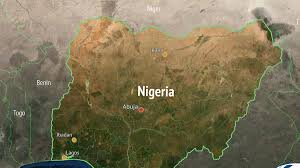New State proposals by CIEN aim to restructure Nigeria into 55 states, promoting symmetric federalism for equity and empowering indigenous groups against settler colonialism and environmental degradation.
In a bold move, the Coalition of Indigenous Ethnic Nationalities (CIEN) has proposed a radical restructuring of Nigeria, potentially changing the country’s map forever. This new plan, if taken seriously by lawmakers, could mean saying goodbye to your current state and hello to a completely new one. But what exactly does this mean for Nigerians, and is it really the solution we need?
Divide and Rebirth: The CIEN Proposal
CIEN’s proposal suggests that the current federal structure is failing Nigerians, particularly indigenous ethnic groups, who suffer from environmental degradation, land dispossession, and systemic oppression. Their solution? A return to symmetric federalism, a system that devolves more power and resources to regions, allowing them to govern themselves more effectively and equitably.
According to CIEN, “It is time for a national rebirth and to frontally confront the challenges, foster unity, and rebuild the nation on the principles of justice, inclusivity and sustainable development.”
Historical Context: From Colonization to Systemic Oppression
The historical journey of Nigeria’s ethnic groups has been tumultuous. From the chains of slavery to the yoke of colonization, and now facing internal conflicts and systemic exploitation, the struggle for true independence and self-determination continues.
CIEN argues that the so-called independence of 1960 merely replaced Western imperialism with settler colonialism. They state, “Being blessed with mineral resources has thus become a curse rather than a blessing to the indigenous ethnic groups.”
A New Nigeria: The Proposed Regions and States
CIEN’s proposal outlines the creation of eight regions and 55 states, aiming to restore balance and fair representation. Here’s a glimpse of the proposed regions
A New Nigeria: The Proposed Regions and States CIEN’s proposal outlines the creation of eight regions and 55 states, aiming to restore balance and fair representation.
Here’s a glimpse of the proposed regions:
- 1. Northwest Region: Ghari, Kebbi, Kaduna (with Gurara State), Kano, Katsina, Sokoto, Zamfara
- 2. Northeast Region: Borno, Bauchi, Jigawa, Katagum, Yobe
- 3. Eastern Middle Belt Region: Adamawa, Amana, Gombe, and others
- 4. Western Middle Belt Region: Edu, Kainji, Kwara, Kogi, Niger
- 5. Southeast Region: Abia, Anambra, Ebonyi, Enugu, Imo, and new states like Adada and Njaba-Anim
- 6. Western Region: Lagos, Ogun, Ondo, Osun, Oyo, Ekiti, and new states like Ijebu and New Oyo
- 7. South-South Region: Aba, Akwa-Ibom, Bayelsa, Bori, Cross River, Oil River, Rivers
- 8. Midwest Region: Anioma, Edo, Delta, Ose
The Federal Capital Territory (FCT) will remain as is but will be administered by a Mayor, an indigene of Abuja.
Implications and Potential Outcomes
If implemented, this restructuring could lead to significant changes in governance, local development, and resource management. It aims to empower regions, allowing them to address their unique challenges more effectively. However, it also raises questions about national unity and the potential for increased regionalism.
Critics might argue that dividing the country further could lead to more fragmentation rather than unity. Is this proposal a genuine solution or a strategic play from the art of war—divide to conquer?
A Call to Action
CIEN calls on the Nigerian government, civil society organizations, and the international community to support this restructuring effort. They believe that a restructured Nigeria will uplift indigenous communities and provide them with the resources and opportunities needed for sustainable development.
“Silence in the face of injustice is complicity.”
As CIEN eloquently puts it.
Conclusion: A New Dawn or a False Hope?
The proposal by CIEN to reshape Nigeria’s federal structure is as ambitious as it is controversial. It seeks to address deep-seated issues and offer a path to a more equitable and inclusive future. Whether this proposal will be embraced by lawmakers and the public remains to be seen. One thing is clear: Nigeria stands at a crossroads, and the choices made today will shape the nation’s future for generations to come.
References:
– Historical context and analysis provided by BlaccTheddi Post, focusing on the journey from colonization to modern-day challenges faced by Nigeria’s indigenous communities.
